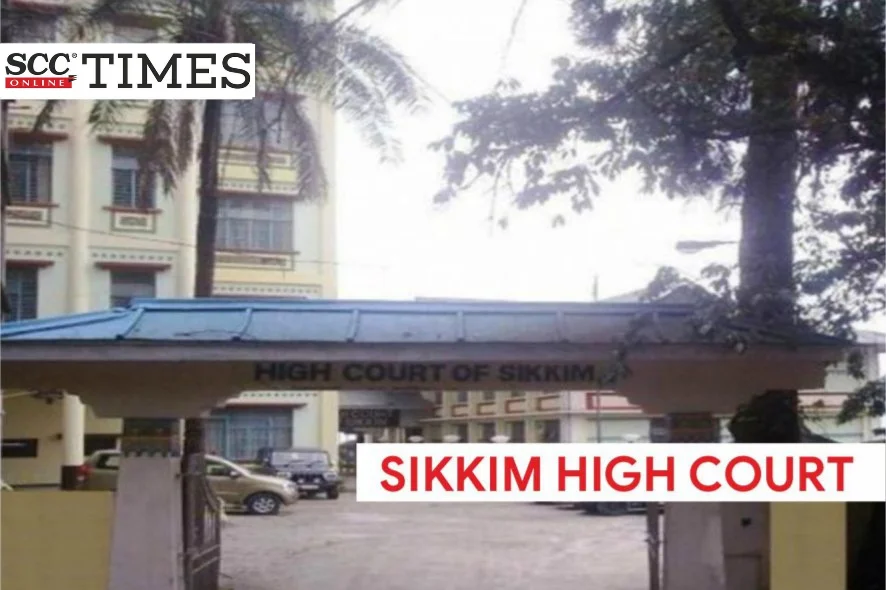Bombay High Court: In a criminal appeal, the appellant who was convicted by the Sessions Judge, Special Division-I, Gangtok District, Sikkim (‘trial court’) under Section 302 of the Penal Code, 1860 (‘IPC’) for murdering his grandmother (‘the deceased’) by slitting her throat with a sharp object, challenged the conviction and pleaded not guilty to the allegations. A Division Bench of Meenakshi Madan Rai* and Bhaskar Raj Pradhan, JJ., upheld the trial court’s decision, holding that even if the Court excluded the extra-judicial confession, though made entirely voluntarily by the appellant to the prosecution witnesses, the other evidence on record would establish that the prosecution had proved his guilt beyond reasonable doubt through forensic evidence and consistent eyewitnesses.
Background:
On 1-11-2022, the appellant, aged 29 years, allegedly attacked his 82-year-old grandmother with a sharp object, slitting her throat. The victim was rushed to the Rangpo PHC by her relatives but was declared brought dead upon arrival. The doctor on duty (PW-2) informed the police that the injuries appeared homicidal. Subsequently, the local SHO received additional information about the assault, and the appellant was apprehendedby a plainclothes constable (PW-18) with the help of locals, including off-duty India Reserve Battalion personnel from the same colony.
During the investigation, multiple eyewitnesses testified to seeing the appellant with the deceased at the time of the incident and observed him fleeing after the assault. A blood-stained surgical blade, allegedly used in the offence, was recovered from the appellant. The evidences revealed the presence of blood stains on the clothes of appellant, which were identified as the same clothes worn by the appellant on the relevant day. The IO, on completion of the investigation filed charge-sheet against the appellant under Sections 302 and 201 IPC.
The charge was framed against the appellant under Section 302 IPC by the trial court, to which he pleaded not guilty and claimed trial. The plea was followed by the examination of 22 witnesses of the prosecution, to prove its case beyond reasonable doubt. The appellant was given the opportunity of explaining the incriminating evidence against him as provided under Section 313 CrPC, in which he claimed innocence. The trial court convicted the appellant which was later upheld by the Court after evaluating all evidence and legal arguments.
The appellant challenged his conviction under Section 302 IPC by disputing the credibility of the weapon recovery, which was made from the plainclothes constable and not directly from him. He argued that extra-judicial confession to the doctor was inadmissible under Section 26 of the Evidence Act, 1872 (‘IEA’) as it was made in police custody. He also questioned the delay in sending seized items to CFSL and the lack of a Test Identification Parade (‘TIP’). The appellant further questioned the credibility of PW-20 as a sock witness and procedural lapses and breach in chain of custody.
Analysis and Decision:
The Court undertook a comprehensive analysis of the evidentiary record and legal objections raised by the appellant and opined that although the extra-judicial confession made by the appellant to the doctor was inadmissible under Section 26 IEA due to the appellant being in police custody at the time, other voluntary confessions made to the civilian witnesses were admissible.
The Court referred to Kishore Chand v. State of Himachal Pradesh, (1991) 1 SCC 286 and Ram Singh v. Sonia, (2007) 3 SCC 1, and opined that a confession made while under police surveillance even without formal arrest was within the ambit of Section 26 IEA. The Court discussed the question whether the accused was aware of the identity of police personnel while making the confession or not. However, in voluntary disclosures made to other prosecution witnesses remain valid if not induced or coerced but even if the Court excludes the extra-judicial confession, though made entirely voluntarily by the appellant to the prosecution witnesses, the other evidence on record would establish the fact that prosecution had proved its case beyond a reasonable doubt.
On the issue of non-holding of the TIP, the Court opined that TIP was not necessary when the accused was arrested at the place of occurrence, enabling witnesses to identify the accused by way of his physical features and other special features and thereafter producing him before the Police. The Court thus held that it was unnecessary in this case as the appellant was known to the prosecution witnesses and was seen both at the crime scene and near the riverside shortly after the incident. Relying on Matru v. State of U.P., (1971) 2 SCC 75, the Court explained that TIP was not substantive evidence and was only relevant where the identity of the accused was doubtful. Further, the recovery of the blood-stained weapon and the appellant’s clothes, all of which matched the deceased’s blood sample, was corroborated by CFSL reports.
The Cout held that the prosecution had proved its case beyond reasonable doubt. Thus, the appeal was dismissed, and the conviction and life sentence under Section 302 IPC as awarded by the trial court was upheld.
[Navin v. State of Sikkim, 2025 SCC OnLine Sikk 59, decided on 9-6-2025]
*Judgment authored by: Justice Meenakshi Madan Rai
Advocates who appeared in this case :
For the Appellant: Kazi Sangay Thupden, Advocate (Pro Bono Legal Aid Counsel)
For the Respondent: Yadev Sharma, Additional Public Prosecutor with Pema Bhutia, Assistant Public Prosecutor



